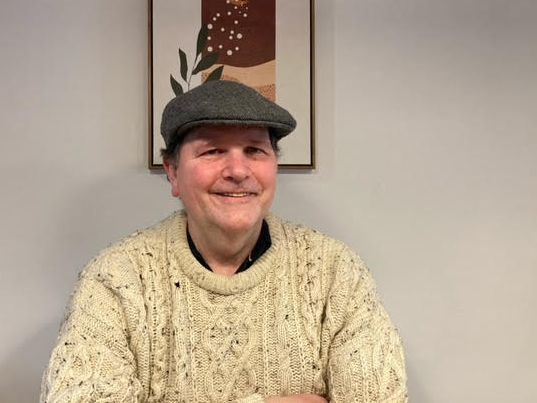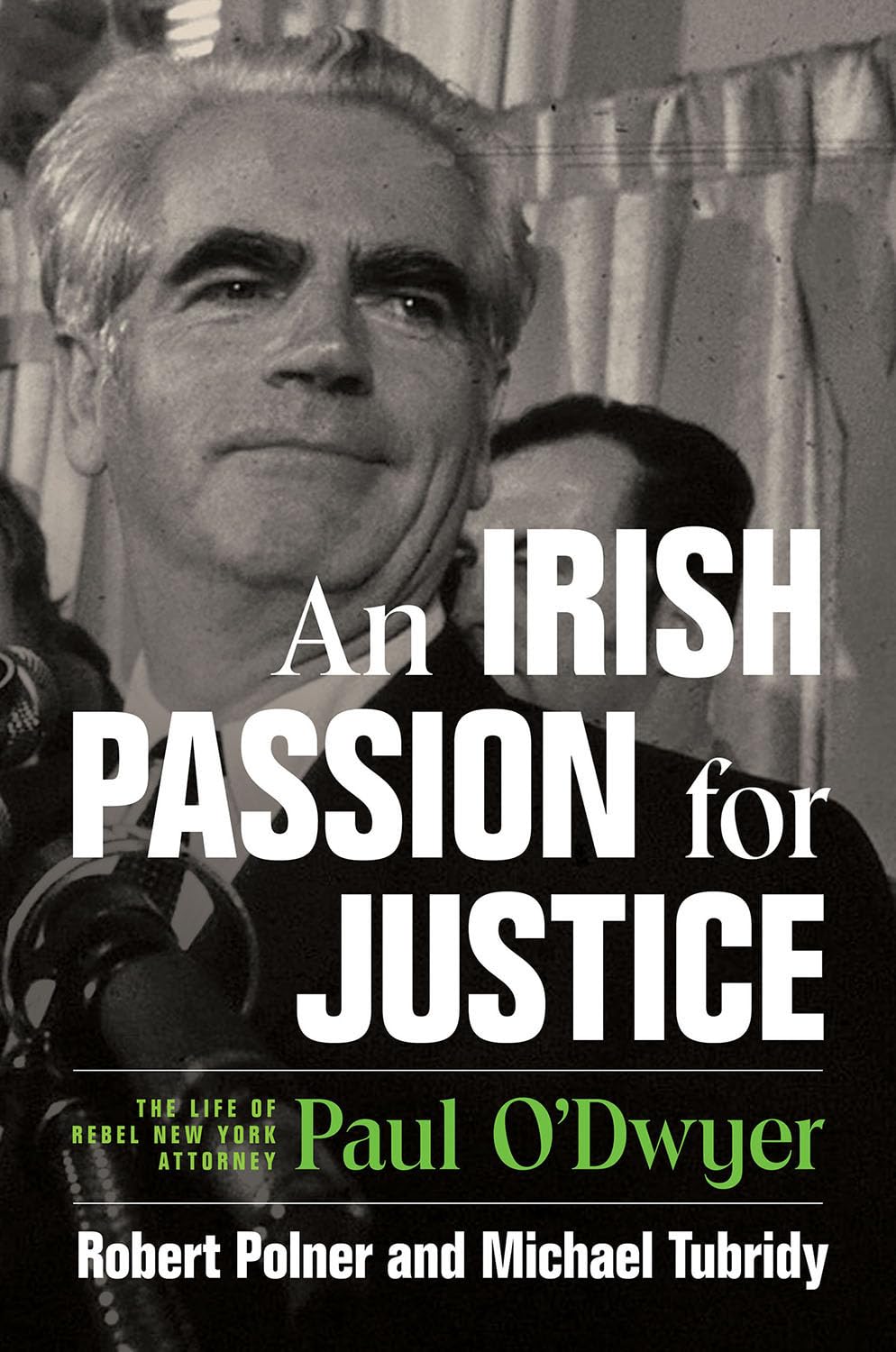Harold Seaman and Vincent Forte were at the center of two cases that Paul O’Dwyer would never and could never forget.
The two young men met the same fate, execution in the prison at Ossining, N.Y., or Sing Sing, its world-renowned nickname.
There were some questions raised as the mental competency of 20-year-old Seaman, the shooter in the three-man gang that held up the Terminal Bar and Grill on Brooklyn’s Fourth Avenue one night in January 1934.
And there was a real doubt three years later as to the safety of the conviction of the 19-year-old Forte, who was said to have shot a grocery store clerk during the course of a robbery, also in Brooklyn.
Seaman was to die for the killing of Jack O’Dwyer, a County Mayo immigrant who’d made his way in New York City as a longshoreman. He and a police officer friend were rounding out an evening’s double date with two sisters. The cop pulled his gun and shot at the attackers, but O’Dwyer was hit by return fire. He lingered for 10 days with his brothers Bill, Frank and Paul keeping vigil at his bedside at Holy Family Hospital.
“A tragedy hideously compounded by the judicial aftermath in which the gunman was tried, convicted and executed,” the acclaimed civil rights lawyer Paul O’Dwyer (1907-1998) wrote later, as noted by Robert Polner and Michael Tubridy in a major biography about him, “An Irish Passion for Justice.”
Whether the O’Dwyers at the time had an opinion collectively on the matter of Seaman’s electrocution in the chair is not known, but the St. John’s Law School graduate Paul soon had reason to abhor the death penalty, which was carried out in 153 cases in New York during the Depression decade, more than any other state.
He was the public defender in seven cases in which it was a realistic outcome, but only Forte was executed.
O’Dwyer was lucky in one of the other six cases in that a juror, an “Irish American with well-tailored clothes,” insisted that the apparently premeditated murder of the mother of two by her ex-boyfriend was a “crime of passion.” A disgusted Judge John Fitzgerald, who had the week before rejected a second-degree murder plea deal, released the jury without the customary thank-you for their service.
Fitzgerald was the judge in late 1937 when Forte requested, via O’Dwyer’s motion, that he be allowed to take a lie-detector test.
“We have no such apparatus here,” the judge said.
Which itself was a lie. O’Dwyer knew that it had helped free one of his clients accused of armed robbery two years earlier.
Fitzgerald, the lawyer recalled in later years, “took a fiendish delight in sending people to the electric chair.”
O’Dwyer "felt betrayed by the system" when Forte was executed at Sing Sing, say the authors, in a work that fellow author Peter Quinn has called an "engaging, eloquent, and enlightening biography of a giant of the modern progressive movement."
The 30-year-old lawyer also believed that anti-Italian and anti-immigrant prejudice of the sort that had helped condemn Sacco and Vanzetti, the anarchists put to death in Massachusetts in 1927, played its role in Forte’s life being cut short.
O’Dwyer was learning fast on the job, and his political views were being formed in part by the social distress he saw first-hand in Brooklyn and Manhattan.
For instance, writing in later years, he took the view, in the authors’ words, that the “degradation suffered by Black Americans, then and historically, was far worse than any subjugation suffered by his Irish immigrants forbears.”
Paul O’Dwyer was the youngest of the 10 children born to County Mayo schoolteachers Patrick and Bridget O’Dwyer who’d survived to adulthood. His four sisters – Mary Rose, Kathleen, Josephine and Linda (mother of Adrian Flannelly) – themselves became teachers in Ireland. One brother, Tommy, died in Mayo at age 18 of appendicitis.
Paul’s arrival in 1925 at age 18 made it five O’Dwyer brothers in New York City; but the following year, Jimmy was killed with a fellow firefighter when a motorcyclist slammed into their truck at an intersection.
The first-born was William, who left Mayo to study at a seminary in Spain the year Paul was born. The youngest O’Dwyer’s close relationship with the fellow lawyer and politician is an important theme in the book.
Bill was to use all on his charm, wit and intelligence to attain the top job in New York City, the last foreign-born person to hold the office.
“While Bill was willing to accommodate Tammany Hall on his way to becoming Mayor of New York City in the postwar period, Paul would not compromise his left-wing beliefs,” author Michael Tubridy told the Echo. “Nevertheless, as Rob Polner and I show, O’Dwyer reached out even to ideological opponents on many issues, particularly his quest for peace and justice in Ulster during the Troubles.
“Moreover, his witnessing of the depredations committed by the Black and Tans in the Irish War of Independence as a youth led him to champion, throughout the rest of his long life, other groups in the United States who endured prejudice, intolerance, and even physical intimidation, such as American Jews, African-Americans, Latinos, and the LGBTQ community.”
As to his own origins, Tubridy said, “I am Irish on both sides of my family -- my father, a County Clare native; my mother, the daughter of immigrants from County Cork.”
But another connection was vital, especially given his new career as an author: “The Sisters of Charity taught me the importance of good grammar and doing my homework—both of which proved as essential in completing a full-scale biography as in surviving 12 years of parochial school.”
Tubridy added, “Working first in a public library in high school and college, then as a reference librarian for nearly 30 years in a not-for-profit trade association, further developed my skills in locating information—and convinced me that books open a portal to other worlds for users of every background.

Michael Tubridy
Birthday: Sept. 10
Place of birth: Bronx, N.Y.
Residence: Englewood, N.J.
Published works: “An Irish Passion for Justice: The Life of Rebel New York Attorney Paul O’Dwyer” (with Rob Polner).
What is your writing routine? Are there ideal conditions?
I write best early in the day, after sipping a drink in a coffee shop and/or going out for a long walk in a nearby park. I work first in longhand, while the thoughts rush through me, then type it all and revise it on my computer, before I’m utterly unable to decipher my frequently illegible scrawl.
What advice do you have for aspiring writers?
1) It can be difficult to subsist strictly on one’s earnings from a book, so work at a job that pays a living wage without sapping your creative energy in the process. 2) Seek models of good writing. 3) If you can’t achieve eloquence (and most of us can’t), then at least strive for clarity. 4) Write every day and seek feedback.
Name three books that are memorable in terms of your reading pleasure.
Oscar Wilde, “The Importance of Being Earnest”; John Kennedy Toole, A Confederacy of Dunces; John O’Hara, “The Novellas of John O’Hara.”
What book are you currently reading?
Steve Inskeep’s “Differ We Must: How Lincoln Succeeded in a Divided America” —a gift from a lifelong friend, on a topic with obvious contemporary relevance.
Is there a book you wish you had written?
F. Scott Fitzgerald’s “The Great Gatsby.” Every time I re-read it, I discover something new I had never noticed before. John O’Hara wrote to John Steinbeck that Fitzgerald was “a better just plain writer than all of us put together.” This novel amply proves that, even as it conveys piercing and enduring truths about the American character.
Name a book that you were pleasantly surprised by.
Edwin O’Connor’s “The Last Hurrah.” You can read all the academic tomes you want about the political machines that Irish Americans dominated for decades, but this frequently hilarious novel gives a better sense than any of them why they held the allegiance of constituents for so long.
If you could meet one author, living or dead, who would it be?
Anton Chekhov—to convey my appreciation for the humor and beauty in his plays and short stories, and to declare my admiration for his selfless devotion as a doctor.
What book changed your life?
Robert Caro’s “The Power Broker” —not just the definitive biography of master builder (and destroyer of neighborhoods) Robert Moses, but virtually a course all by itself in American urban history, and proof of the author’s contention to “turn every page” when working with primary sources.
What is your favorite spot in Ireland?
I have not yet visited the Emerald Isle, but my ancestral homes in Counties Clare and Cork hold an obvious place in my heart.
You're Irish if...
You can find a vein of humor and a reason to believe in life, even when matters are at their darkest.
Michael Tubridy will speak about “An Irish Passion for Justice” at the Oradell Public Library in Oradell, N.J., on Monday, Oct. 21, at 7 p.m. The library website is https://oradell.bccls.org/. Author photo by Shihan Zheng.








